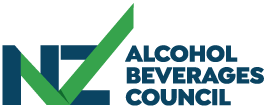OPINION 4 June 2020 – Bridget MacDonald, Executive Director as featured in THE SHOUT NZ
Hospitality businesses were some of the first to be affected by the pandemic. In February and March, prior to moving into full lockdown for Alert Level 4, restaurants, cafes, bars and clubs were already affected by customers’ initial concerns of being out and about with the uncertainty of COVID-19. This resulted in a significant downturn of around 40% before plunging to an all-time low of 95% over April.
It’s felt like a long journey through the Alert Levels as businesses slowly opened and tried to adapt to the restrictions of the new operating environment of each level. The limited opportunity to open doors at Level 2 under the 3S guidelines came with higher operational costs and the restrictions on capacity reduced the ability for businesses to generate income – the higher-performing ones only making 50-60% of revenue for the same period last year. Unfortunately for some businesses, the restrictions have meant not being able to open at all.
We are nearing the prospect of Level 1, where we can say goodbye to social distancing and capacity limits – a step closer to ‘normal’. More people will soon be back working at their regular workplaces, which will greatly assist those businesses in town and city centres. Removing the restrictions will also allow hospitality venues to operate more freely, and ultimately afford them to drive more income and control costs.
However, moving to Level 1 is not the panacea it appears to be.
While Level 1 appears to be ‘business as usual’ on paper, the reality for the industry will be very different. After months of zero income and significant financial challenges, we can expect to travel a long and rocky road to recovery. It sounds like a gloomy outlook, doesn’t it? However, we need to be realistic about the situation we are in. Our operational freedoms might be back, but there are still constraints in this environment, and our businesses are reliant on customers.
We know the industry will have a very long tail of recovery for a few reasons. Consumer anxiety around socialising and being out and about remains for some, and we don’t know how long it will stay that way. This isn’t helped by the uncertainty of our economic environment, which means people may continue to be conservative with their spending. We can expect reductions in discretionary income due to job losses and high unemployment. International tourism isn’t likely to return in the foreseeable future, and on top of that winter is typically the slowest season for hospitality.
If hospitality expects a long road to recovery, then what about the alcohol beverages sector -growers, producers, suppliers, importers and exporters? Well, the supply chain has been hit just as hard, and we estimate a similar recovery period of up to three years for brewers, distillers and winemakers – that sentiment is agreed globally.
I think it’s still important to remain upbeat, optimistic and hopeful that we can revitalise the sector and get this economy moving again. A good number of Kiwis seem to be keen to get out and connect with friends and family again. It’s been great to see smiling faces and hear the buzz of long-awaited catch-ups in restaurants, cafés and bars. Socialising with good food and drinks in an environment of warm Kiwi hospitality is a vital part of our culture and the lifeblood of our communities. We may have a long and rocky road ahead, but the rockiest roads can also lead to the highest peaks.
